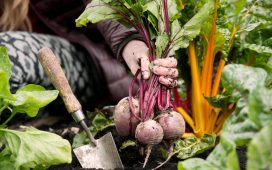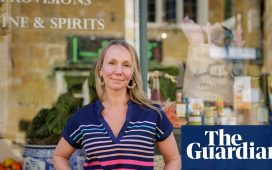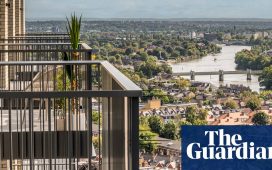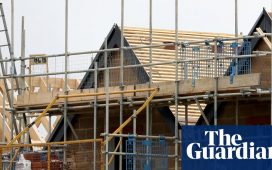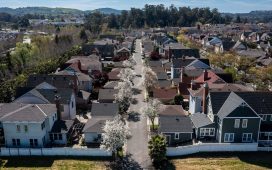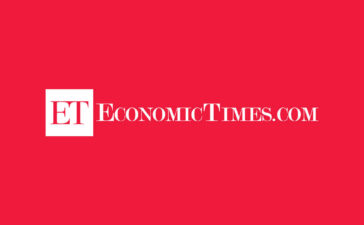In early 2023, after a wave of defaults shook China’s property industry to its core, one of the country’s largest and most trusted developers struck a note of quiet confidence.
“We are one of the few companies that can still rely on its own creditworthiness,” said state-linked China Vanke, the second-largest homebuilder in the country last year. It said it had overcome “numerous difficulties” to deliver 340,000 homes in 2022, more than were built in the UK over the same period.
A year on, that confidence has turned to concern after rating agency Moody’s downgraded the company this week and estimated sales had fallen 40 per cent in January and February compared with a year ago, part of a property slowdown in China that began with the 2021 default of China Evergrande and which shows few signs of abating.
The downgrade of Vanke, which is partly owned by the Shenzhen Metro, shows that even a developer with substantial state backing is not immune to a crisis of confidence among ordinary Chinese homebuyers, while a slump in its bond prices points to similar pessimism over its financial health.
Vanke was founded by mountaineer and social media personality Wang Shi in 1984 and brought in Rmb504bn ($70bn) in revenue in 2022, according to its latest annual report. Like many of its peers, the business emerged from the privatisation of China’s housing in the 1990s. It is 28 per cent owned by the Shenzhen Metro, occupying a middle ground between a private and state-owned company.
The developer has 1,000 projects under way in China and a range of prestigious projects internationally, in cities from London to Milan, according to its website. It has also expanded into other sectors, including a pork business it grew in 2020, when African swine fever resulted in the culling of a large portion of China’s pigs.
Despite its connection to authorities in the southern Chinese tech hub of Shenzhen, Moody’s — which this week removed Vanke’s investment-grade ratings — does not “factor in any state support or government support or even stakeholder support”, said Kaven Tsang, senior vice-president at the rating agency.
“We see [property] as a very commercialised and competitive industry in China and we don’t expect the government will provide direct support to individual developers”, he added.
Chen Long, co-founder of research firm Plenum, said offering potential support to Vanke would be tricky for the government because other developers could question why they did not receive similar treatment.
Chinese developers typically sell projects before they are completed, bringing in cash that helps pay for the work. But this model has been shaken by construction delays at failed groups such as Evergrande, leading homebuyers to question whether they will ever receive their properties and discouraging new land purchases and investment.
Vanke, which mainly builds high-rise buildings, was in late 2022 made eligible for special funding from state banks. But it has not issued any new bonds since July, according to Moody’s.
Around that time, fellow developer Country Garden, until recently the largest developer in mainland China by sales, began to miss payments on its international bonds. The company, which like Vanke was initially seen as shielded from the funding problems within the sector, eventually defaulted on a dollar bond for the first time in October.

Since then, confidence in the wider market has worsened. New home prices in China have edged lower every month since June last year. Vanke’s bonds, which at the start of the year traded at stable levels, are now signalling mounting distress.
Ting Lu, chief China economist at Nomura, wrote this month that a “real property recovery” is currently “not in sight” and that developers were reluctant to purchase land. He estimated nationwide revenues from land sales could fall to Rmb2.9tn in 2024, compared with Rmb3.2tn in 2023 and Rmb4trn in 2022.
During the recent annual meeting of China’s rubber-stamp parliament, Yi Gang, former head of the People’s Bank of China, cited the need for an insurance mechanism for presales, which he said would help the market transition within three years to one where sales are mainly of completed homes.
John Lam, head of China and Hong Kong property research at UBS, said he believed the industry would shift in that direction in the future but added that this was negative for the internal rate of return and return on equity of developers. Vanke’s Hong Kong-listed shares are down 53 per cent over the past 12 months.
There are signs that the company is taking steps to shore up its finances. In February it sold stakes in a plaza in Shanghai for $451.2mn. Vanke said in a statement this week that its “operating fundamentals” were “normal”.
Beijing has sought to reduce debt across the property sector through a series of policies, introduced after fears of home prices overheating in 2020, and has not unveiled any significant stimulus.
Other developers, which had borrowed heavily to fuel a pattern of rapid expansion, have restructured their debts or are in discussions to do so.
Vanke still has an investment-grade rating at S&P and Fitch, the latter of which downgraded it in October, citing weak sales. The group has just $2.6bn of offshore debt, compared with more than $20bn at Evergrande.
But any eventual failure at Vanke would be a greater repudiation of a levered model of property development in China that until recently proved highly profitable.
Its bonds are “still too expensive”, said one offshore bond trader at a Chinese state bank in Hong Kong. “The risks are not commensurate with the rewards.”
Additional reporting by Wang Xueqiao in Shanghai


